Water is obviously the best hydration option for diabetics due to its zero calorie and sugar content. But, we understand that variety is the spice of life; and we know some people just can’t stand drinking plain water too.
So, you’re obviously curious to discover what you can drink besides water, right?
You’ll be pleased to learn there are lots of options!
But when you do choose drinks, you don’t want to make choices that compromise your blood sugar levels.
Explore this friendly guide for several amazing beverage options that are not only safe but can also add some enjoyment to your hydration habits, without the added sugar.
Plus, some options also add additional health benefits to your diabetes diet plan!
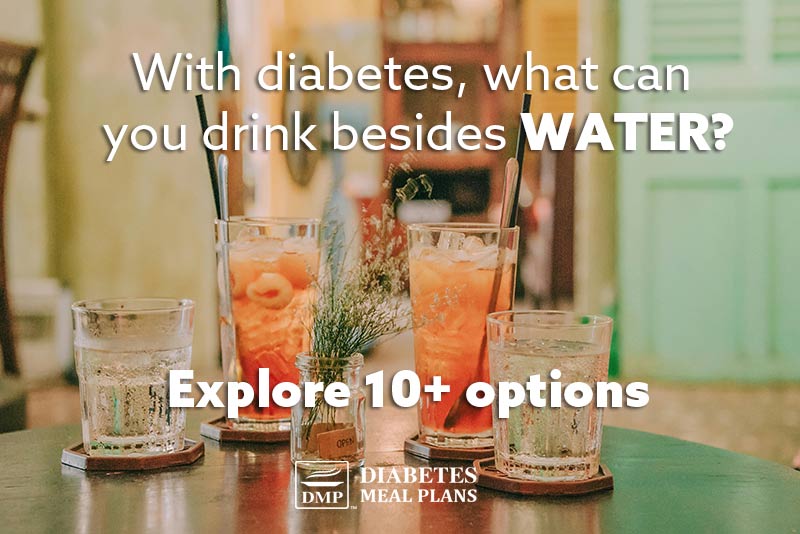
1. Herbal Teas
Herbal teas are a wonderful alternative to plain water.
They are naturally caffeine-free and come in a variety of flavors such as peppermint, chamomile, ginger, lemongrass, rooibus and hibiscus.
Many of these teas carry health benefits; for example, chamomile tea can help reduce stress and improve sleep quality and may help reduce A1c. Cinnamon tea reduces inflammation, helps lower blood sugar and improve insulin sensitivity.
When choosing herbal teas, opt for unsweetened varieties to avoid added sugars.
And the good thing is you can take your herbal teas hot or cold.
Choose an herbal tea of your choice. There are some fantastic store-bought herbals such as blackcurrent, raspberry, ginger, lime, lemon, apple, pear, peach, and so forth – all of which are low in sugar but have a naturally sweet flavor.
Steep a strong concoction in a jug, keep in the fridge and drink as desired, over ice if you prefer your drinks extra cold.
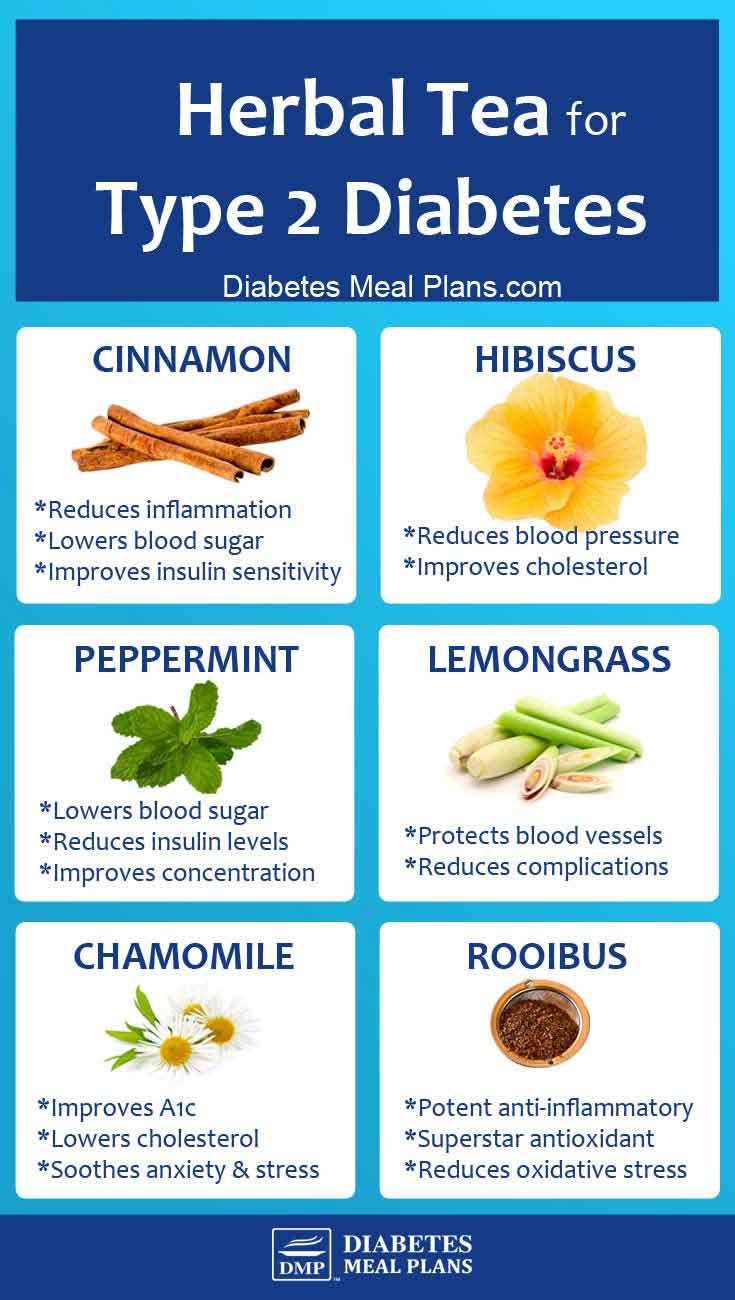
2. Black and Green Tea
Both black and green teas are rich in antioxidants, which can help fight inflammation and protect against disease.
Studies have shown that green tea, in particular, may improve insulin sensitivity and reduce blood sugar levels.
Remember to drink them unsweetened; adding a slice of lemon can enhance flavor without adding carbs.
3. Coffee
Good news for coffee lovers: moderate coffee consumption can be part of a diabetes-friendly diet.
Some research suggests that coffee may reduce the risk of developing type 2 diabetes. And if you have type 2 diabetes, coffee can effectively reduce blood sugar and insulin levels, help decrease triglycerides and reduce fatty liver disease.
While coffee itself can provide a number of benefits, the stuff you put in coffee may not. Sugar for instance is simply “empty liquid calories.”
Opting for black coffee or using a splash of milk, a sugar free creamer, or a sugar substitute can keep your coffee diabetes-friendly.
4. Vegetable Juice
Vegetable juice, especially when homemade, can be a nutritious addition to your diet. Vegetables are low in sugars and high in vitamins, minerals and dietary fiber.
You can also consider drinking some of the lower carb V8 Juice options, like the 100% veggie juices or the healthy greens.
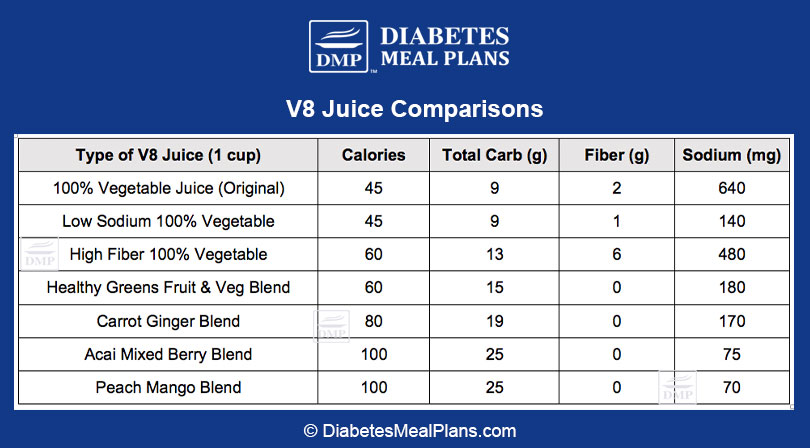
When making juice at home, focus on non-starchy vegetables like spinach, kale, and cucumbers.
Keep in mind that juicing can remove fiber from vegetables, so it’s often better to consume whole vegetables or blend them into smoothies to retain all the dietary fiber.
5. Milk
Milk provides calcium, vitamin D, and protein – all of which add quality nutrition to your eating plan.
Plant-based milk alternatives like almond, soy, or coconut milk can also be excellent choices, especially the unsweetened versions, as they contain fewer carbs and sugars than regular milk.
6. Sparkling Water
For those who miss the fizz of carbonated beverages, sparkling water can be a refreshing alternative.
It’s hydrating and can satisfy the craving for a carbonated drink without the added sugar or artificial sweeteners found in diet soda.
Look for naturally flavored or plain varieties to avoid any unwanted additives.

7. Infused Water
Infusing water with fruits, vegetables, and herbs is a great way to add flavor without adding sugar or calories. Lemon, lime, cucumber, berries, and mint are popular options.
Infusing water is simple: just add your chosen flavors to a pitcher of water and let it sit for a few hours or overnight.
For example, slice up some fresh cucumber and add a twist of lemon. Or add a few slices of lime, slivers of ginger and sprig of rosemary or thyme to water for a tantalizing lime spritzer.
The result is a deliciously refreshing drink that’s both hydrating and enjoyable.
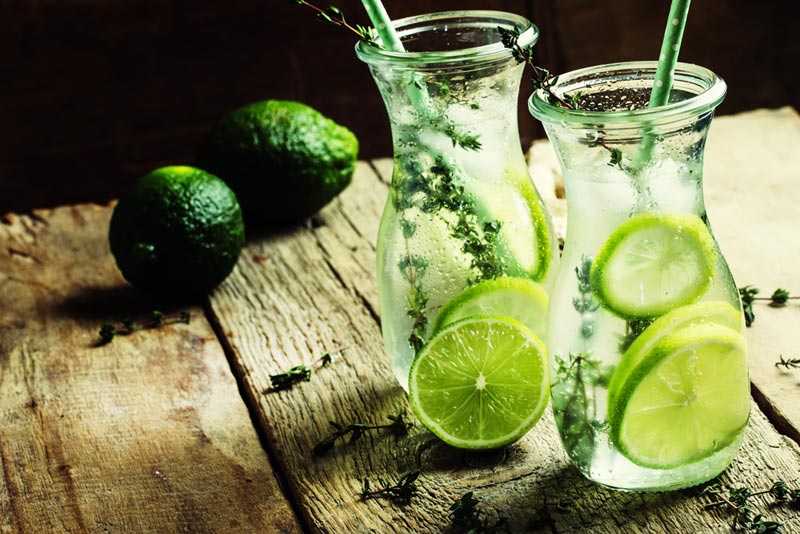
8. Kombucha
Kombucha, a fermented tea beverage, has gained popularity for its probiotic benefits, which can aid in digestion and overall gut health.
However, it’s important to approach kombucha with caution if you have diabetes.
While it can be a healthier alternative to sugary sodas, kombucha can vary in sugar content depending on the brand and fermentation process.
Opt for kombuchas labeled as low-sugar or those with the sugar content clearly listed, and consume them in moderation.
9. Kefir
Kefir is a fermented milk drink similar to yogurt but with a thinner consistency. It’s packed with probiotics, protein, and vitamins.
One of the major benefits of kefir is has antimicrobial, immune strengthening properties and helps to improve digestion – all of which help promote better outcomes for diabetics. It’s also been shown in studies to improve blood sugar control too!
Like with kombucha, it’s vital to select versions that are low in sugar or unsweetened.
10. Smoothies
Smoothies can be a nutritious beverage option, allowing for the inclusion of fruits, vegetables, protein sources, and healthy fats all in one drink!
However, the key to making a diabetes-friendly smoothie is balance. Focus on lower carb fruits like berries, and include plenty of greens like spinach or kale.
Adding a source of protein, such as Greek yogurt or a scoop of protein powder, and healthy fats from nuts or seeds can help stabilize blood sugar levels.
Be mindful of portion sizes and the total carbohydrate content, aiming to keep your smoothie within your daily carb goals.
11. Store-Bought Drinks
Thankfully, there are now a wider range of store-bought options that you can readily choose to drink.
LaCroix, Dasani and many other companies make flavored (unsweetened) varieties as well.
LaCroix flavor their sparkling waters with natural flavors that are often fruit extracts and essential oils. They contain zero sugar, zero sweeteners, zero carbs and come in a variety of flavors – berry, coconut, lemon and orange.
You can also purchase stevia sweetened flavorings to add to your water. Stur water enhancers are a great choice. Natural ingredients, sweetened with stevia and contain zero carbs.
Special Considerations Regarding Diabetic-Friendly Drinks
While exploring these options, it’s crucial to remain mindful of a few key points:
- Monitor Blood Sugar Levels: Individual responses to different beverages can vary. Monitoring your blood sugar levels will help you understand how different drinks affect you personally.
- Read Labels Carefully: Always check the labels for added sugars or carbohydrates, even in drinks marketed as “healthy” or “natural.”
- Moderation is Key: Even the healthiest drink options can lead to problems if consumed in excess – and it can be easy to drink too much of something! Keep an eye on portion sizes and how they fit into your overall dietary plan.
What Can Diabetics Drink Besides Water?
As you can see by the above list, you have a lot of drink options besides water alone!
From herbal teas, coffee, vegetable juice, sparkling and infused waters, smoothies, kombucha and kefir; plus, with various store-bought varieties available – the options are endless.
By choosing wisely and monitoring your body’s response, you can enjoy these drinks without compromising your health goals.
Incorporating these drinks into your diabetic diet can add enjoyable variety and contribute to a balanced, healthful lifestyle – enjoy!

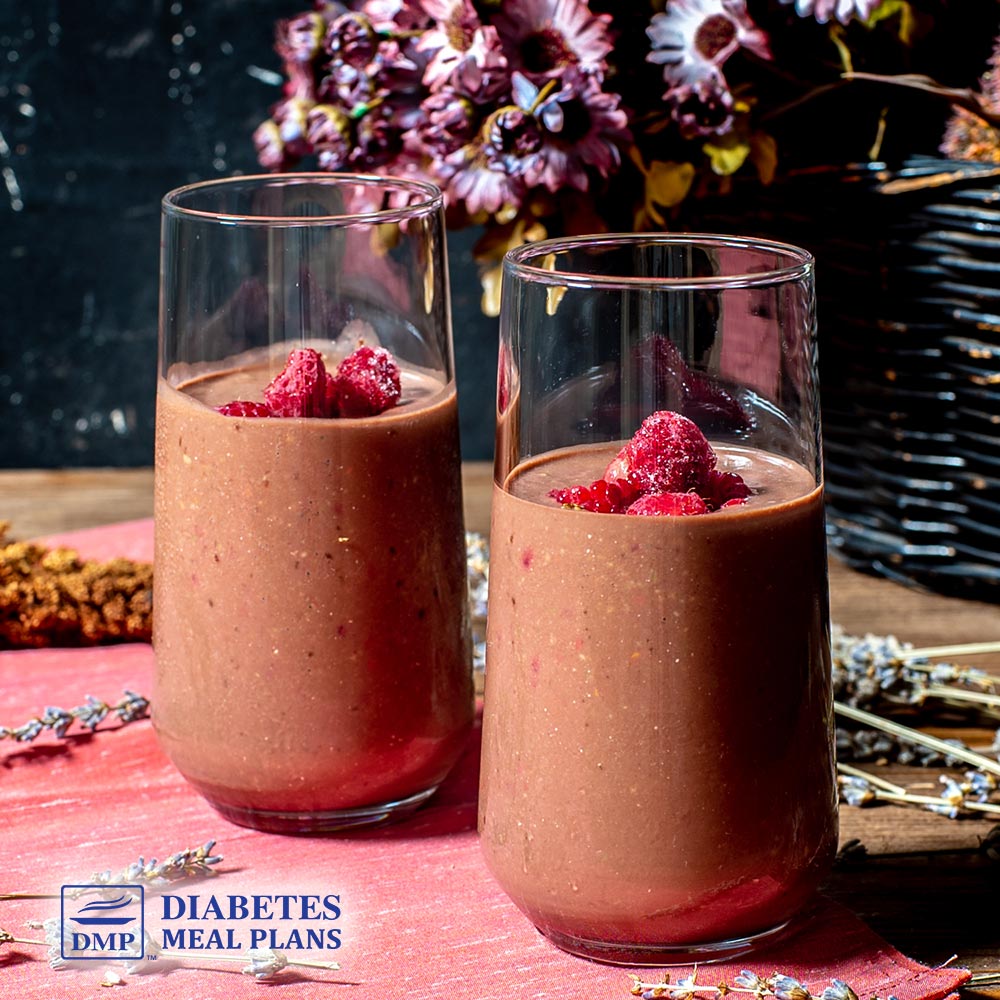

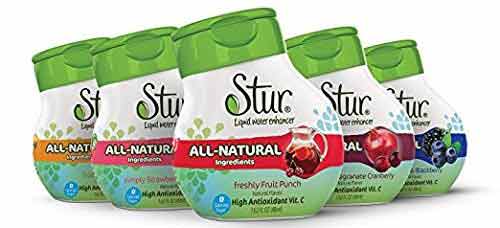
I’ve heard that drinking smoothies is not a good idea for people with high blood sugar. It has something to do with the amount of time food is in your mouth for either the tastebuds, or the chewing motion (not too sure which one) to send the signal to your pancreas to produce insulin.
Dan, we do recommend eating food over smoothies, as chewing whole foods helps regulate blood sugar because it slows down digestion and allows time for your body to signal the pancreas to produce insulin and other regulatory hormones properly. But, when smoothies contain healthy ingredients – fiber, protein and lower carb ingredients – they will not necessarily impact blood sugar. The overall message is: it predominantly depends on the ingredients as many people use things like banana and don’t include proteins, fats and fiber.